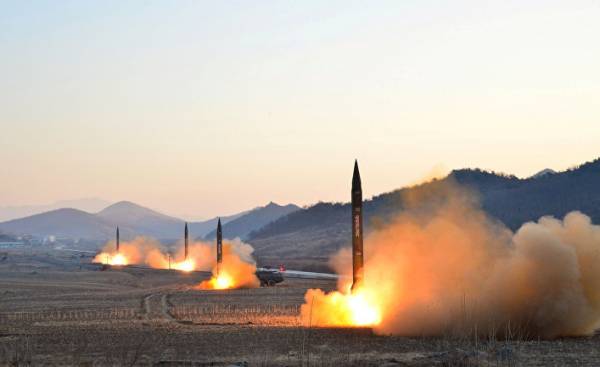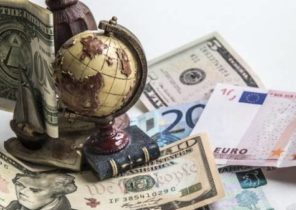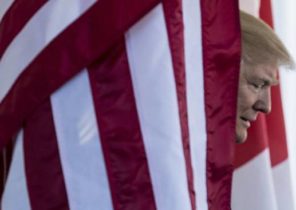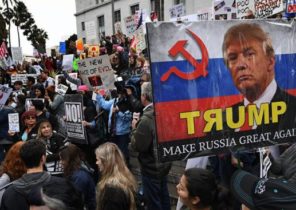
Several decades after the end of the Korean war and division of Korea into two parts, the conflict on the Korean Peninsula continues to be one of the most dangerous and intractable problems of our time. And today he became even more dangerous and even less solvable than before.
The North Korean regime is a cold war relic, a dinosaur of Stalinism, which survived until our days. Meanwhile, South Korea has quickly become a regional economic and technological power, and China, the most important ally and the only financial sponsor of North Korea, successfully pursued a policy of modernization.
Against the background of such developments the North Korean regime became isolated and began to rightly fear for their future. As a result, for the survival of his brutal dictatorship of the ruling workers ‘ party of Korea led by the Kim clan, jumped at the idea of creating nuclear weapons and systems necessary for their delivery.
Today all the diplomatic and technical efforts to stop the process of nuclear armament of North Korea has failed. Now it’s just a matter of time before North Korea could be nuclear missiles that can hit South Korea and its capital Seoul, as well as Japan and even major cities on the West coast of North America.
The US, for its part, placed in South Korea anti-missile system. The administration of the tramp, as, indeed, the previous US administration considers North Korea’s quest to possess Intercontinental missiles capable of hitting San Francisco and Los Angeles, as an excuse for war. If a color scale that is used today to indicate the terrorist threat level to apply to the crisis on the Korean Peninsula, we would see the changing of orange to red. Time for a diplomatic solution (or at least to contain the crisis) quickly leaves the situation nearing its climax.
The reason is that the current drama is playing out in a very tense strategic region. South Korea and Japan, two major players in the global economy and close partners of the United States, is under immediate threat, meanwhile, China and Russia, two of its Northern neighbor North Korea are nuclear powers, and they have their own interests in this conflict.
In particular, China is looking to the Korean Peninsula from the point of view of strategic security. The Chinese leadership does not forget that Imperial Japan in the 1930-ies invaded Northern China (Manchuria), the Korean Peninsula and bringing American troops to the Yalu river on the Chinese border triggered the intervention of the Chinese in the Korean war in the early 1950-ies.
Since then, China acts as a quasi-protector of North Korea, and the United States provide protection to South Korea, in particular, maintaining a large military presence in the region, despite the end of the Cold war. Without the American military presence is likely in this region again began to war; or, at least, Japan and South Korea got to own the tools of nuclear deterrence.
Military confrontation on the Korean Peninsula could lead to a nightmare scenario with use of nuclear weapons, and maybe even to larger scale clash between the world’s nuclear powers. Any scenario will have serious negative consequences, not limited to narrow geographical limits of the region. Nevertheless, the persistence of North Korea to possess nuclear Intercontinental ballistic missiles means that to continue the policy of waiting and observation.
So, what will make the US President Donald trump? A series of recent visits to countries in the region, senior American officials leads to the conclusion that the new administration perceives the situation on the Korean Peninsula as a serious threat. In March, when German Chancellor Angela Merkel met with trump in Washington, U.S. Secretary Rex Tillerson made his first official visit to the far East, and even earlier — in February — it was visited by the Minister of defence James Mattis.
In South Korea, Tillerson said nothing comforting. He spoke of the “imminent threat”, announced the end of “strategic patience policy”, which was held by former U.S. President, Barack Obama, and stated that “considered all options”, including military action.
Hard tone Tillerson could be justified if he helped the United States, China and North Korea to negotiate a settlement. But what if this does not happen? A war using nuclear or conventional weapons on the Korean Peninsula is associated with countless global and regional risks. In reality, if you carefully consider these risks, we can understand that not all options should be considered: diplomacy, despite all the difficulties, is the only solution.
However, a diplomatic solution can be achieved only if the US and China will work closely and will not repeat the mistakes of the past. For example, the administration trump would have acted reasonably by refusing to take an unnecessarily aggressive stance towards China in the South China sea amid the escalating crisis on the Korean Peninsula.
At the same time, China’s leadership should ask the question how long it intends to unconditionally support the North Korean regime (completely dependent on Chinese supplies), instead of starting to pressure him to end the North Korean provocations. To prevent military conflict, China and the United States will need to agree on joint approaches and begin to move toward the resumption of six-party talks with North Korea.
It becomes increasingly clear that even under the leadership of President trump, the United States can’t shy away from its role as a stabilizing force on the world stage. And China needs to prove that in the XXI century he, too, could be a stabilizing force, and for this he must fulfill his part of the work to resolve the conflict on the Korean Peninsula.







